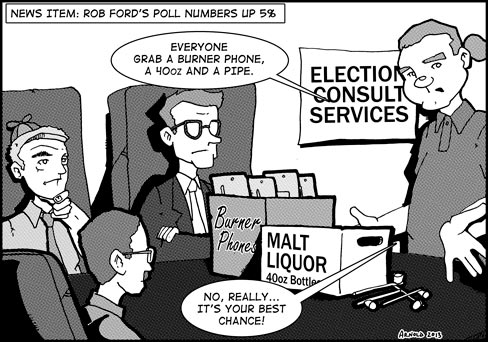Just a few months after West Montrose was spared a gravel pit, a report from Queen’s Park proposes changes to the province’s Aggregate Resources Act (ARA) that could alter an often unpopular process. There might even be some common ground between farmers and the industry responsible for extracting aggregate, often from farmland.
The report from the review of the ARA, released October 31, would see comprehensive changes to public consultations processes, licensing practices, modes of transportation, and encourage the promotion of recycled aggregates and further rehabilitation of aggregate extraction areas. Some proposed actions have already been taken to heart as the latest talks between the Ontario Federation of Agriculture (OFA) and the aggregate industry took place last week.
“We had a very good dialogue about what’s going on in recycling; there are lots of misconceptions that there’s no recycling being done and there’s no rehabilitation being done so we cleared up a lot of misconceptions,” said OFA president Mark Wales.
September marked the first-ever comprehensive discussions between OFA and the Ontario Sand, Stone and Gravel Association. Recent joint events include a presentation last week at OFA’s policy advisory council meeting by OSSGA CEO Moreen Miller, who spoke of the challenges faced by the aggregate business.
As need for both land and aggregate resources rises, it’s urgent for the industries to find way of coexisting, Wales said.
“We’re not going to preserve every acre, and there are people out there who say let’s just freeze it all and do nothing. The reality is, then, we’re going to stop building roads and all of the things that a modern society needs we’re not going to have any longer. We can’t ignore the problem and if we don’t start talking, then 10 years from now we’ll just be at the same place.”
Prorogation of the Ontario Legislature in October 2012 significantly slowed the review, but Kitchener-Conestoga MPP and member of the review committee Michael Harris says the report addresses the concerns of his constituents, especially those previously involved in the long battle over a pit proposed for West Montrose. In August, Capital Paving withdrew its bid for a gravel pit near the historic covered bridge.
Underway since March 2012, the review included public hearings in Toronto, Orangeville, Kitchener, Kanata and Sudbury and ended last week with 38 recommendations to the government.
Harris said suggestions for public consultation, including improved methods for informing local communities, and land rehabilitation are most important to residents threatened with gravel pits. He said he was happy to see recommendations on the issue of recycling included in the report.
“Rehabilitation, that’s something I think is important, and as well the recycling aspect. I know the recycling aspect can be controversial at times because some raise questions of it happening in existing quarries or pits, but, I think it is an important step forward to ensure that if we want to limit the amount of virgin sites or virgin material that we are using, we have to use more recycled material,” Harris said this week.
The long-awaited recommendations now face a review by the Ministry of Natural Resources.








